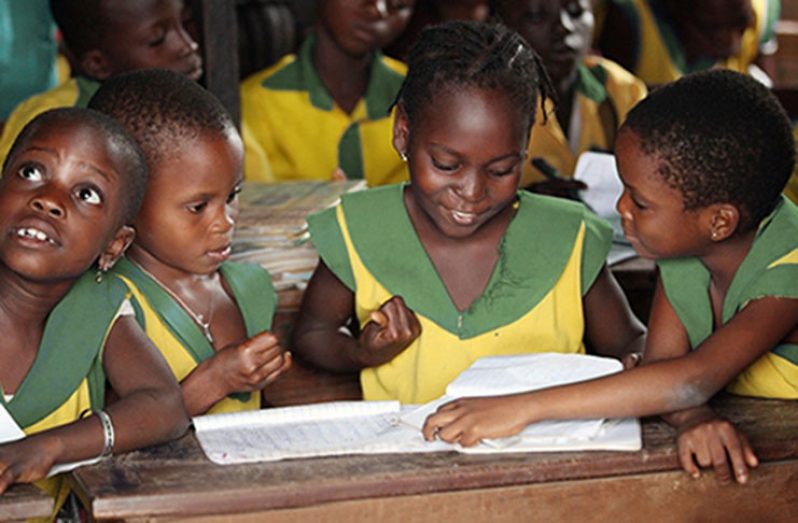…submissions call for prestigious Commonwealth education awards
The Commonwealth Secretariat is inviting nominations and submissions for the Good Practice Awards 2018.
The Awards recognise the outstanding contribution and achievements of education professionals and bodies that have made a difference to learners’ lives through innovative education and learning for development initiatives and practices. In a release the secretariat said the fifth Commonwealth Education Good Practice Awards were launched at the Secretariat’s headquarters to invite applicants from Commonwealth countries to highlight their good practices in education and to encourage, reward and generate enthusiasm within the education sector.
Any organisation, whether public or private, including Commonwealth ministries of education, educational institutions and civil society organisations advising in or delivering education and learning in Commonwealth countries can nominate themselves or be nominated. The formal and non-formal education sectors span from early childhood education to adult education, including primary, secondary and tertiary education, technical and vocational education and training, and skills development.
A good practice submission must be a policy, programme, project or strategy that has made a positive difference to learners, whether children, young people or adults, or to the education system of a Commonwealth member country in respect of one or more of the five categories for 2018. The five categories are:
Category 1: Eliminating gender disparities in education, especially for girls and women.
Advancing education and learning for girls and women. Fostering empowerment and eliminating gender based violence through education.
Category 2: Delivering quality education and learning in difficult circumstances. Delivering education in difficult environments. Reconfiguring the financing of education for people living in difficult situations. Providing education and learning against all odds.
Category 3: Education and learning to improve employment opportunities for young people.
Education initiatives that provide learning and training experiences that increase employment opportunities for young people. These can include science, technology, engineering and
mathematics (STEM) initiatives.
Category 4: Education as a powerful response to climate change.
Equipping learners for the inevitable changes in the climate (adaptation) while inculcating a greater understanding of and responsibility for the environmental consequences of human actions (mitigation).
Category 5: Education and pathways to peace.
Educating for peace, preventing conflict and promoting a culture of peace and good citizenship through education. Building a fair and inclusive Commonwealth that embraces diversity.
Winners will be awarded at the 20th Conference of Commonwealth Education Ministers (20CCEM) in Fiji in 2018.
Submissions must be received by 15 February 2017. Completed application forms should be sent by e-mail to educationawards@commonwealth.int and/or posted to: The Co-ordinator, Education Good Practice Awards, Health and Education Unit, Commonwealth Secretariat, Marlborough House, Pall Mall, London SW1Y 5HX, United kingdom.
Criteria for the Awards
Entries will be judged using the following criteria:
•Relevance: Contextual, socio-cultural and economically appropriate responses to the challenge of education delivery in a specific country.
•Innovative: Displaying innovation in its approach, methods or outcomes.
•Measurable Impact: Evidence that it has been independently evaluated and its impact assessed e.g. through qualitative and quantitative indicators.
•Sustainability: Demonstrates its capacity or potential in delivering sustainable benefits for society, and in making substantial contribution to the education sector.
•Efficiency and Effectiveness: Demonstrates efficient and cost effective use of resources in its implementation.
•Knowledge Exchange and Participation: How it contributes to knowledge exchange, successfully communicates its objectives, approaches and findings to stakeholders, and encourages community and civil society participation, ownership or contribution.
•Replication: The extent to which the initiative is replicable in other Commonwealth countries and can advance good practice within the sector and/or influence policy agendas promoting good practice
Reminder: Entries should be clear and comprehensive, and should clearly describe how good educational and learning policies or practices have been implemented and what has been achieved.




.png)









